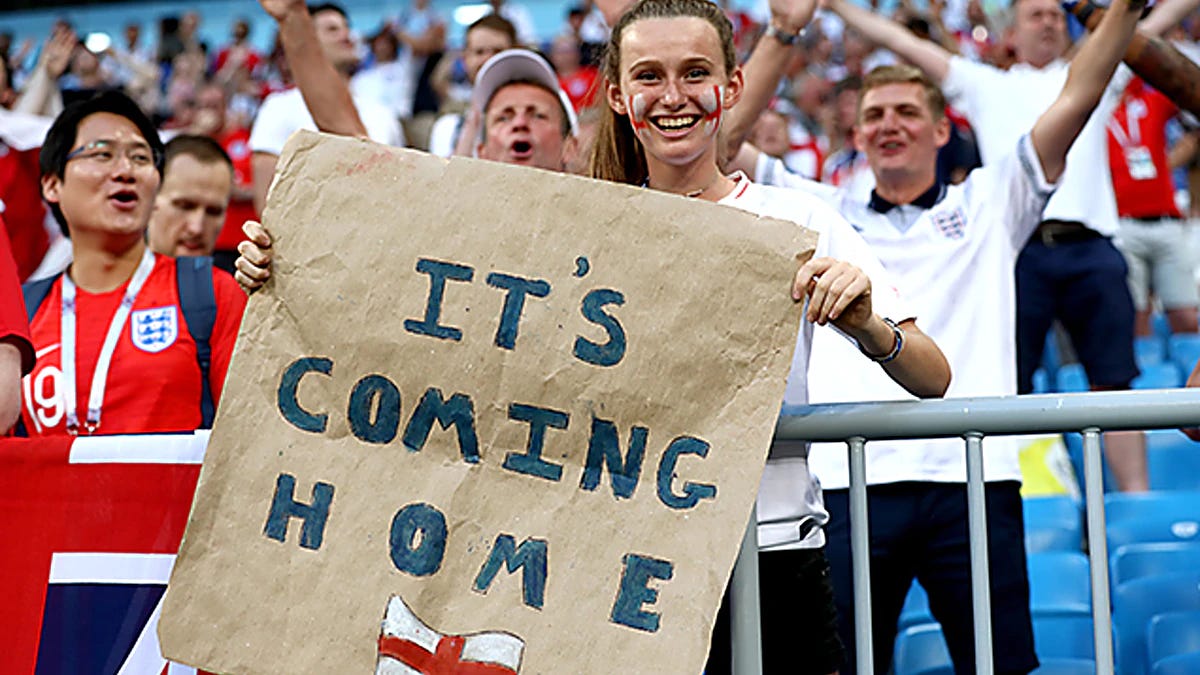Strategy
What you can learn from the Euros
It's coming home! Although almost certainly not, particularly as we can't even score against Scotland. If you live in England you'll have heard that phrase at least 100 times since the European Championships started on the 11th June.
Being a football fan, I enjoy watching any game or competition, but international football is special. Not only in how it unites countries and draws the attention of casual fans, but also in the strategy that managers have to employ.
Club managers, like Jose Mourinho, have the luxury of going out and buying players to create their squad. International managers have to play with the cards they have been dealt, adding a layer of complexity to proceedings.
Whilst companies can hire people to improve their team, there are several lessons that can be learnt from watching the Euros.
Strategy
In business, in life, and in sport, shit happens. What is important, is that the strategy pivots where needed. Perhaps this is temporary, perhaps it is more permanent.
In football, were a key player for a team, like Andy Robertson for Scotland or N'Golo Kante for France, to get injured, the strategy would need to pivot. The balance of the team would be off, and the offensive strategy would need to change to use other routes.
The same can be said, to a certain degree, of a startup. Your key salesperson is on leave for a week or, even worse, hands in their notice and jets off. There will need to be quick thinking so you can get someone to scrub in on sales. Ideally, like in football, you would have other players who can play that exact role/position. But that's not always the case.
There is also the wider strategy point. How do you react to market movements, competitors iterating, and other developments? Sometimes you will need to pivot the strategy to remain on track for growth, sometimes it may just be a few minor tweaks to optimise your growth strategy.
The same can be said for managers during the Euros. Following Gareth Southgate's disaster class against Scotland, the Twittersphere was in uproar. Late to add attacking substitutes to the game, insisting on keeping the defence-orientated formation, and not playing some of England's most creative and dangerous attacking players (Jadon Sancho, Jack Grealish, Dominic Calvert-Lewin), it certainly wasn't his finest match in charge.
Scotland is ranked 40 places behind England in the UEFA rankings but managed to get a point and, to a large extent, outplay England. 20 year old Scottish midfielder Billy Gilmour managed to boss the middle of the park despite this only being his second appearance for the national side. His English opponents have much more experience but couldn't seem to get the tactics right, struggling to really get much in the way of offence.
Whilst this is part of the beauty of football, and business, in that the underdog can win against the odds, it's certainly an interesting case study in strategy.
Team Composition
It's important for any team to know their roles. When Dejan Lovren, the Croatian central defender, stepped up to take a free kick 30 or so yards away from the opposition's goal, it raised eyebrows. He's scored 20 goals in 470 career games and isn't known for his shot. Safe to say Lovren didn't come close to scoring. It would have made much more sense for someone else to have taken the free kick, and perhaps they would have won the match.
Similarly, it's important for your team to know their roles and responsibilities. Who does what? What standard is expected of them? What is the process for bringing other departments into the mix? These are all questions which drain productivity of companies worldwide, as it wastes time and reduces focus.
Every employee should know what their role in the wider team is. What they lead on, their levels of responsibility and delegation, as well as where they play more of a supporting role. This should be a comprehensive awareness of their role - a job description, KPIs that align with their role, and regular 1-2-1 sessions to ensure their questions are answered, particularly any on prioritisation.
Having a salesperson writing marketing copy, or a product manager answering first line support tickets, just doesn't make any sense for the company. Not only is the cost higher, that's not why they were brought in. To really progress, in business and in football, you need to know your role and decide what will move the needle.
Execution Reigns Supreme
Stating the obvious here, but strategy is nothing without execution. You can draft the perfect go-to-market plan, and have a comprehensive five year business plan, but if you can't execute it's not worth a penny.
Execution eats strategy for breakfast - someone
Having the right people in the right positions is a great start to ensuring that your execution will do your strategy justice, but it's ultimately down to the people doing their part. This can be partially influenced by a manager who ensures they know what to focus on and what's expected of them, but the responsibility ultimately falls to the individual.
This is why 1-2-1s are so important, to work out if that individual is working effectively and can continue to work in the role. Similarly, this is why substitutions are important in football. Player not performing in line with expectations and/or the wider strategy? Take them off and put someone else on the field who is hungry for the opportunity.
Parting Shot
Whether or not it does, in fact, come home this summer, it will be a thrilling summer of football and associated strategy. Let's see who comes up trumps and lifts the trophy on 11th July.




